The Struggles Men Face in Friendships, Based On Their Myers-Briggs® Personality Type
Friendship is something everyone needs in order to really be happy and content with life. Even the most reclusive introvert craves a confidante to share their thoughts and feelings with. But for some men, forming meaningful relationships can be exceptionally challenging.
According to a recent 2021 survey of over 2,000 adults in the United States, less than half of men expressed genuine satisfaction with their circle of friends. Shockingly, 15% admitted to not having any close friends at all. This represents a staggering fivefold increase since 1990. Men were also less likely than women to rely on their friends for emotional support or to share personal feelings with them. These findings shed light on the importance of nurturing meaningful connections and the growing challenge of cultivating fulfilling friendships in today’s society.

“Boys, when they’re young, are capable of having all kinds of fun with each other and enjoy hanging out, being physical, and all that stuff. Then, something happens. We put them in school, where it’s OK to play and be aggressive, but where there’s something taboo about being too friendly.” – Daniel Ellenberg, president of Relationships That Work
But how can men cultivate deeper and more meaningful friendships? And how does personality type play a role in the struggles men face finding friendship in today’s world? That’s what today’s article aims to address.
Let’s get started!
The Impact of Myers-Briggs® Personality Types on Men’s Friendships
The ENFP Male
ENFP men seek possibility, imagination, and authenticity. It’s not enough to make it in the corporate world, they want to live a life that resounds with meaning and the sense that anything is possible. Enthusiastic, creative, and charismatic, ENFP’s don’t disappoint when it comes to inspiring enthusiasm for the future or life itself. As such, they often find themselves in the center of their social circle. It’s as if they are the food of inspiration and others are all ravenously hungry.
The challenge ENFP men face is that the “alpha male” template of success doesn’t always appeal to them. They’re more interested in exploring meaning and values than they are about climbing the corporate ladder or being the jock that everyone admires. There’s also a deep emotional well of feeling that resides within the ENFP man, and this can be hard to access with the casual friends he might have in his social circle. It often feels taboo to discuss feelings, relationships, or deeply-held values in male circles. Many men would prefer to talk about cars, sports, or money than to open up about their inner lives. This can leave ENFP men feeling a bit restless and uninspired in friendships. They want to have a deeper sense of meaning in their relationships but they may feel that to pursue that openly would result in being judged or ridiculed.
Find out more about ENFPs: 7 Reasons Why You Need an ENFP Friend in Your Life
The ENTP Male
ENTP men embody the entrepreneurial spirit – they have a drive and passion that fuels their ambitions. They’re always seeking out new data, ideas, and possibilities to explore. Playing devil’s advocate, engaging in debate, or speaking radical truths are all ways the ENTP man can engage with his friends. They also have a unique charm and an insight into the emotional world of others. Often they can sense how people feel and accommodate accordingly.
The challenge for ENTP men is in finding peers that can understand and appreciate their unique insights. According to the latest MBTI® Manual, ENTPs make up only 4.3% of the national population and can therefore be hard to find.
We also tend to live in a world that prizes social values over truth at all costs. Many ENTPs have an urge to debate societal norms, question social values, and challenge the status quo – even if it means advocating unpopular opinions. This can make engaging in a meaningful conversation difficult, as people might be reluctant to discuss topics that don’t conform with popular beliefs. Many people can label ENTPs as “mean” or “thoughtless” when they question popular beliefs – and this can make forming meaningful friendships hard. ENTPs need to be able to explore and debate ideas and perspectives, and as the world becomes increasingly policed about matters of free speech, this is becoming increasingly difficult for them.
Find out more about ENTPs: 10 Things You Should Never Say to an ENTP
The INFP Male
INFP males are deeply sensitive and introspective. They take their time to figure out what matters most in life and strive to live in accordance with deeply-held personal values. Matters of meaning lie close to their heart more than matters of money or material gain. They have an acute sense of empathy and often relate deeply with others on a soul-level, by putting themselves in others’ shoes and using their own self-understanding to grasp others’ emotions.
The challenge INFP men face is finding people with whom they can connect and who are willing to explore meaningful topics of conversation. The world of men tends to be more focused on materialism and power than on true friendship. It can be hard for an INFP man to find peers with whom he can explore his spiritual ideas, discuss meaningful topics, and express the realm of the imagination. Many men find such things taboo and shy away from them, focusing instead on cars, video games, sports, or business. And while INFPs can occasionally find these topics enjoyable, they hope for deeper and more meaningful connection in their friendships. They want to go beyond the static conversations of shallow topics and explore the nuances of life that often go undisclosed.
Find out more about INFPs: Are INFPs Empaths?
The INTP Male
INTP males are innovative, introspective, and logical thinkers. They often tap into deep stores of knowledge and insight that can surprise those around them. They’re adept at analyzing a situation and breaking it down in order to get to the heart of the issue. But socializing can be exhausting for them, especially if there are a lot of societal standards and protocol involved.
The challenge for INTP men is in finding a sense of belonging amidst the hustle and bustle of society. The world of men is often filled with competition, heckling, banter, and posturing. INTPs can find the whole ordeal uninspiring and boring. What they seek is intellectual stimulation and meaningful conversations that can help them explore their thoughts and ideas in depth. It’s often hard to find people who are willing to go beyond the surface level of conversation, which can leave INTPs feeling bored and restless. Over time this can lead to an aversion to socializing altogether. At the same time, INTPs may not commit enough regular, consistent time to maintain or deepen their friendships. Many INTPs crave deep friendships but find the process of forming them too daunting, energy-draining, and time consuming. As a result, friendships may fall by the wayside due to lack of consistency and attention.
Find out more about INTPs: Why INTPs Feel Overwhelmed When Looking for Friends
The ENFJ Male
ENFJ males look for depth, meaning, and understanding in their relationships. They crave intimacy and authenticity in relationships; a sense of closeness and warmth. They like to find ways to make the world better through social interaction, by helping those around them live up to their potential. Linda Berens, a psychologist and typology expert, calls ENFJs a “catalyst” personality type. Catalysts need meaning and purpose and thrive when they can counsel, mentor, and inspire those around them.
The challenge for ENFJ males is finding people who are willing to talk about meaningful topics with them. The trope of the “alpha male” has detrimental effects on male friendships, perpetuating harmful gender stereotypes that discourage empathy in boys and men. Expressions of physical and emotional affection, or even emotion and relationship-driven conversation, are often neglected or even ridiculed as “too feminine.” ENFJ men, who are conscious of society’s expectations of them, are often torn between wanting to maintain their authentic selves and wanting to fit in with the traditional standards of masculinity. This can lead to them feeling isolated or even ashamed of their more intense empathic nature. As catalysts, ENFJs crave unity, empathic relationships, and self-actualization more than they value competition, power, and status.
Find out more about ENFJs: Understanding ENFJ Feeling
The ENTJ Male
ENTJ males are natural-born leaders who thrive in the world of ideas and projects. They look to find ways to implement their visions and strive for meaningful change. In friendships, they want people who will challenge their thoughts, debate with them, and explore concepts, ideas, and strategies. ENTJs also value people with a strong sense of authenticity and purpose. Friends who have integrity and walk their path regardless of the opinion of others are highly valued.
The challenge for ENTJ males is finding a balance between their often busy work lives and their relationships. ENTJs tend to be career-driven, often working long hours on projects and initiatives. This can make maintaining friendships challenging as they may spend more time focused on their work than their social life.
Furthermore, the ENTJ’s direct conversation style can be seen as “too intense” for other personality types. ENTJs may think they’re simply stating their opinions clearly, but to others it may come across as confrontational or even aggressive. ENTJs aren’t going to shy away from controversial topics, and they detest small talk. Because of this, they may inadvertently scare people. Accommodating others’ sensitivities isn’t always easy for them, as ENTJs often want their conversations to go straight to the point without much beating around the bush – something which many people find uncomfortable.
Find out more about ENTJs: How ENTJs Say “I Love You”
The INFJ Male
INFJ males are gentle, introspective souls who crave deep connection. They have a natural ability to sense the feelings of those around them and use that information to help others work through life’s challenges. INFJs can be both compassionate and analytical when it comes to relationships; they look for understanding at all levels – physical, mental, emotional, and spiritual.
The challenge for INFJ males is that, for one, they are an extremely rare personality type. Making up a mere 1-3% of the national population, INFJs often find it difficult to find people who can understand their point-of-view. They love exploring concepts, looking for meaning, discovering patterns, and delving into the unknown. Because men are often conditioned to hold back their feelings and focus on fact-based conversations more than theories, INFJs may be seen as too “out there” for many people.
In addition, INFJs tend to feel overwhelmed in large groups and may find the energy of a party or even gathering exhausting. They often need alone time to recharge and process their thoughts – and thus may quickly burn out of events where they could meet potential friends. Furthermore, they don’t like small talk; they’d rather spend time getting to know someone on a deeper level than simply talking about the weather or what they did last weekend. INFJs may sometimes feel like people don’t truly understand them or that they have to wear a mask in order to fit in. For an INFJ, this can be very draining. As a result, they may end up opting out of socializing altogether or accept friendships that are surface-level and not truly fulfilling.
Discover more about INFJs: 10 Things You Should Never Say to an INFJ
The INTJ Male
INTJ males are independent and visionary thinkers. They are often found ruminating over complex problems or theories, looking for patterns and solutions. INTJs need intellectual stimulation in friendships; they want people who can test theories with them, explore concepts, and challenge them intellectually or even spiritually.
The challenge for INTJ males is that they tend to appear aloof, which may be off-putting to others. INTJs don’t often show emotion, and they can come across as uncaring or even intimidating simply because their emotions don’t register readily on their faces. They can look stoic and unfeeling even if they are invested in someone. It’s more natural for INTJs to look unapproachable and quiet than engaging and enthusiastic. Because of this, people may think that the INTJ doesn’t like them when in fact they are just having a case of “resting INTJ face”.
Furthermore, INTJs have a strong distaste for small talk. They care less about surface-level details and experiences and more about depth and intellectual discovery. For many men, conversation tends to start with chit-chat and fact-based exchanges before progressing to more meaningful topics. For INTJs, getting through the chit chat and onto the real topics feels like an uphill battle. They’d rather cut to the chase and bypass small talk altogether. This can make it hard for them to connect with others, as people often feel slighted or ignored by INTJs’ lack of interest in more casual conversations.
Find out more about INTJs: 10 Things You Should Never Say to an INTJ
The ESFP Male
ESFP males are charismatic and spontaneous, with a restless desire to explore the world and make things happen. They are natural entertainers who can light up a room with their energy and humor. ESFPs need friendship that are high-energy and fun; they value friends that will go on an adventure with them, try new things, and seize the moment.
The challenge for ESFP males is that they have a more hidden sensitive side. While they may appear impulsive and no-nonsense, they have values, emotions, and beliefs which guide them and give them a sense of deep fulfillment. Yet men are often socialized to reject vulnerability and bottle up their emotions, and because of this ESFPs often find it difficult to express their feelings and values, even though they wish they could. This can mean that ESFP men often repress their feelings and give into a more socially acceptable tough, risk-taking exterior. Because they rarely get to express their more rich emotional side, they may lose touch with their feeling compass, and may in turn struggle to honor their true values or find meaning and fulfillment in their friendships. It’s common for ESFP men to have many friends, but to feel a bit unfulfilled in stereotypical male relationships.
The ESTP Male
ESTP males are daring, adventurous, and direct. They need friends that can keep up with their fast-paced lifestyle and willingness to take risks. As adventurers, they want people who can come on spontaneous trips with them, embark on physical challenges, or swap jokes and life stories.
The challenge for ESTP men in friendships is that they can easily “chameleon” in order to fit into different groups. Because of their adaptability, ESTPs can easily switch roles and amp up the charm depending upon the situation. This can be beneficial in some cases; however, it may also mean that ESTPs, on their own time, wonder which version of themselves is actually authentic. They may wonder if any of their friendships have depth and staying power, or if people are only with them for a good time.
Simultaneously, as men get older, more and more men become sedentary and focused on relaxation more than fun. This can be a problem for ESTPs, as they still crave adventure and excitement and their friends begin winding down. At times they can feel bored and restless in their friendships, wanting to go on adventures, play sports, or do anything that involves movement and excitement while their friends just want to sit on the couch and watch TV or talk.
The ISFP Male
ISFP males are gentle, authentic and creative. They have a deep appreciation for beauty, creativity, and authenticity. Many have specific interests and hobbies that they become deeply passionate about, such as art, music, or nature. ISFPs need friends who share their interests and can give them the space to explore and express themselves freely. They also crave friendships with people who share their passions for specific causes or values.
The challenge for ISFP males is that they often keep their thoughts private. They don’t always feel comfortable verbalizing what’s on their mind — instead preferring to express themselves through creative outlets. As men, they can feel out of place for not being more direct and blunt. Male communication is often filled with friendly heckling, arguing, or fact-reporting. ISFPs are less interested in these kinds of things. In many cases they’d rather find an activity to quietly do with a friend than make chit-chat. And while they may be able to joke around for a time, they find friendships that lack depth ultimately unsatisfying.
Lastly, people often misinterpret the ISFP’s quiet nature as aloofness or even apathy. This can mean that people shy away from them, which in turn may leave the ISFP feeling like there is something “wrong” with them. ISFPs appreciate friendships where they can be silent together. They don’t need to talk to feel connected with someone, but this can be off-putting to those who are used to more extroverted or talkative relationships.
Discover more about ISFPs: Are ISFPs Rare? Unleashing the Mystery
The ISTP Male
ISTP males are fiercely independent and logical. They enjoy friendships where they can swap facts or simply do fun activities or challenges together. In fact, they would often prefer to engage in physical activities to social ones and tend to feel bored and restless in big social gatherings. They have a high need for personal freedom and enjoy friendships where a shared love of adventure and knowledge keeps them together.
The challenge for ISTP males is that they can often come off as aloof or distant in their relationships, sometimes even appearing apathetic to the feelings of others. While this isn’t necessarily true — ISTPs value logic and objective facts over emotion — they may be perceived as insensitive or distant. Thus people may avoid forming closer attachments to them or may perceive them as being uninterested in the relationship.
Moreover, ISTPs enjoy debating and fine-tuning the logic or precision of a particular argument. They may find themselves debating with their friends without realizing how uncomfortable it is making them. Over time they can start to feel like it’s pointless to even try to make friends, as people take things too personally and don’t care as deeply as they do about being accurate and being logically consistent.
Explore more about ISTPs: 10 Things ISTPs Look for in a Relationship
The ESFJ Male
ESFJ men are caring, expressive, and loyal. They enjoy social gatherings and often have a gift for hosting and organizing parties or events. Outgoing and demonstrative, they often have a large circle of friends, but they also value the depth in their relationships. They have strongly held beliefs and values and tend to cultivate friendships where those beliefs or values can be celebrated and talked about.
The challenge for ESFJs is that they often put aside their own needs in order to please other people. This can mean that their friendships become imbalanced and one-sided, where the ESFJ puts all of his efforts into taking care of his friendships without getting anything in return. As a result, ESFJs can become frustrated and drained as they try to manage and care for their friendships while also dealing with their own needs.
Additionally, ESFJs can easily “chameleon” in social situations and can lose themselves in the process. If it is socially unacceptable for men to share their feelings, the ESFJ man will likely hold back, which can lead to feelings of frustration, loneliness, and emptiness. Because men are traditionally taught to suppress their emotions, the ESFJ man may find himself feeling disconnected from his friends and unable to share who he really is. He may feel like he’s sharing a surface-level version of himself that doesn’t reflect his true feelings or values. This can lead to feelings of despair, confusion, and even depression as he struggles to find his authentic self.
The ESTJ Male
Outgoing but tough, ESTJ men value friendships where they can share facts, knowledge, and advice. They are natural born leaders and enjoy crafting plans that can take them or their friends to success. ESTJs are often seen as the “go-to” for advice or problem-solving.
The challenge for ESTJ males is that they can be too direct when having conversations. For example, they may come off as aggressive in their criticism of others, even if it is meant to be helpful. If an ESTJ sees a flaw or problem, their natural tendency is to point it out so it can be fixed. Unfortunately, this rarely goes over well when it comes to critiquing real people. Instead of being seen as helpful, their bluntness is often seen as insensitive or overly-brusque.
Additionally, ESTJs can be so focused on their work and responsibilities that they don’t make time for check-ins or activities with their friends. If they have a lot of responsibilities, they will naturally prioritize those over friendships so ESTJs who have a lot on their plate may find themselves becoming isolated and feeling lonely. Yet they feel they can’t prioritize their friendships because it would be almost irresponsible to do so.
Find out more about ESTJs: What It Means to be an ESTJ Personality Type
The ISFJ Male
ISFJs are individuals with a quiet and modest demeanor. They yearn for loyal companions who share their values. Faithful and soft-spoken, ISFJs are unwaveringly there for their loved ones. They tend to cultivate profound connections with a select few, dedicating their undivided attention and energy to their loved ones.
The challenge for ISFJ males is finding those friendships that are meaningful and emotionally satisfying. ISFJs can be shy in social situations, which means they may struggle to find people who they can connect with. They enjoy lifelong friendships, people they’ve known for years who have seen them through thick and thin, but it can be difficult to find those types of friendships in the first place especially if you move around a lot or have shifted social groups. Adult ISFJ men may feel uneasy asserting themselves and can burn out of high-sensory situations quickly. Unfortunately, high-sensory situations are the norm for large social groups so ISFJs trying to meet people may feel apprehensive.
Moreover, ISFJ men often feel overwhelmed by the male world of competition, heckling, and braggadocio. They often prefer quieter, more intimate conversation with people who share their values and outlook on life. Unfortunately, this can be hard to find in a world that emphasizes individual success over relationships. As a result, ISFJs can sometimes feel isolated as they struggle to find the type of meaningful connections that fulfill them.
Find out more about ISFJs: 7 Reasons Why You Need an ISFJ Friend in Your Life
The ISTJ Male
ISTJ males value practicality, loyalty, and consistency. They are often seen as reliable sources of support and advice because of their loyalty and fact-driven, meticulous nature. Respectful but direct, ISTJs strive for success both in their personal lives as well as professionally.
When it comes to friendships, ISTJ men can sometimes struggle with making time to meet people. They are very work driven, and when they aren’t at work, they enjoy recharging in the quiet of their own home. This can lead to a lack of social outlets which can make it difficult for ISTJs to meet people. Large, crowded events can also be highly stressful for ISTJs.
Additionally, ISTJs hold tightly to their values and traditions, which can lead to them being picky about who they invite into their inner circle. For most ISTJs, it’s ideal to find groups that share the same values or hobbies. For example, if you’re a religious person, attending a church or other religious-based organization can be a great way to meet people who share the same values and beliefs. If you’re a chess aficionado, you can look into joining a chess club to meet others with your same interests.
No matter what activities or hobbies ISTJs find themselves in, it’s important for them to remember that friendships require effort and vulnerability. It is up to the ISTJ man to make sure he is opening himself up enough for his friends so that he can create meaningful connections. With a little bit of effort, ISTJ men can create wonderful connections that will last for years.
Find out more about ISTJs: Are ISTJs Rare? A Look at the Detective Personality Type
Conclusion
It’s important to remember that no two people are the same and everyone has their own unique challenges when it comes to making friends. Each type of personality comes with its own set of strengths and weaknesses. Some personalities may have an easier time making friends than others, but everyone can find meaningful relationships if they put in the effort and are open to connecting with people.
What Are Your Thoughts?
Do you have any experiences or insights that could be shared about making friends as your specific personality type? Please share your thoughts in the comments section below! We’d love to hear from you.
Find out more about your personality type in our eBooks, Discovering You: Unlocking the Power of Personality Type, The INFJ – Understanding the Mystic, The INTJ – Understanding the Strategist, and The INFP – Understanding the Dreamer. You can also connect with me via Facebook, Instagram, or Twitter!


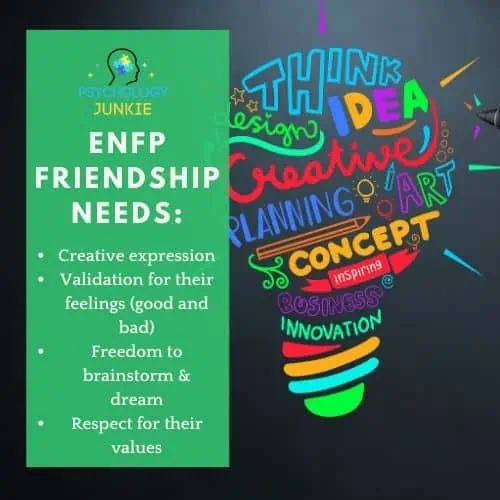

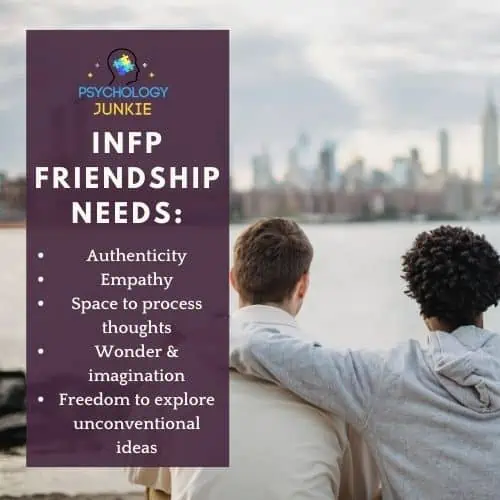
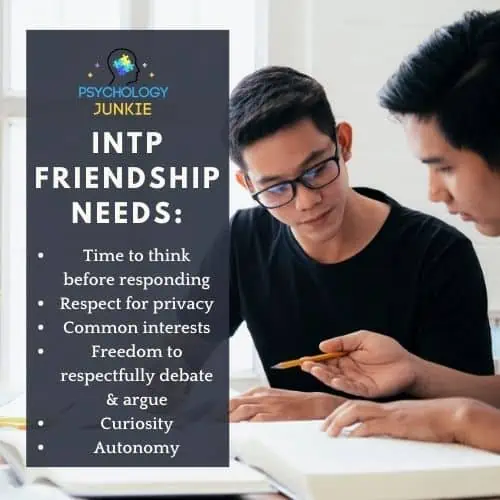

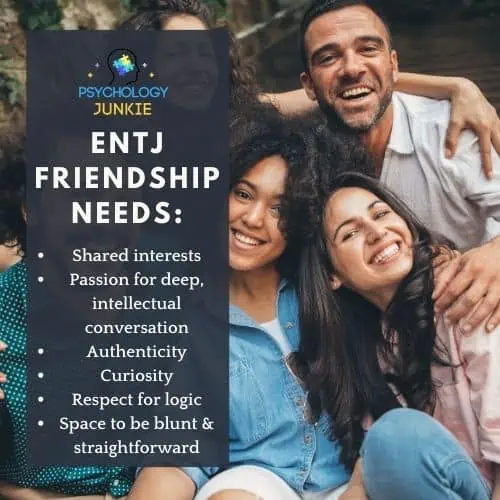




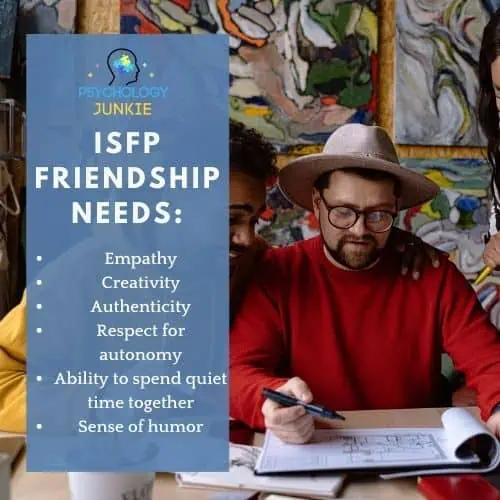
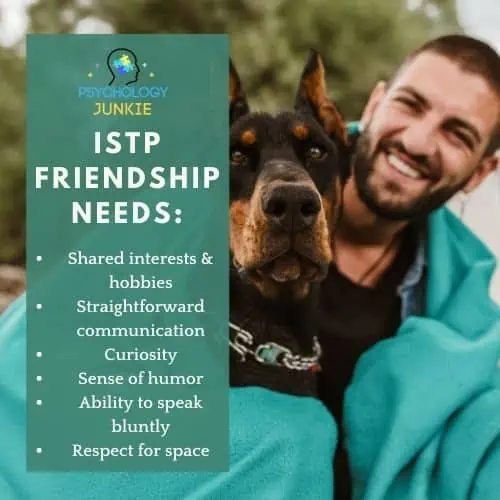

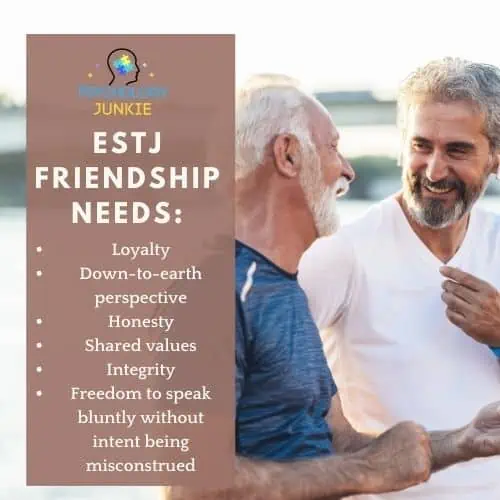
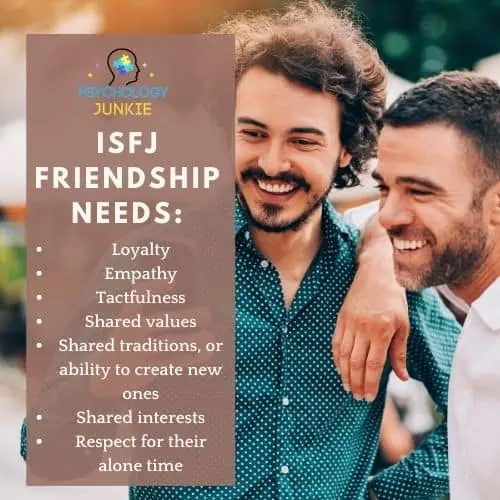
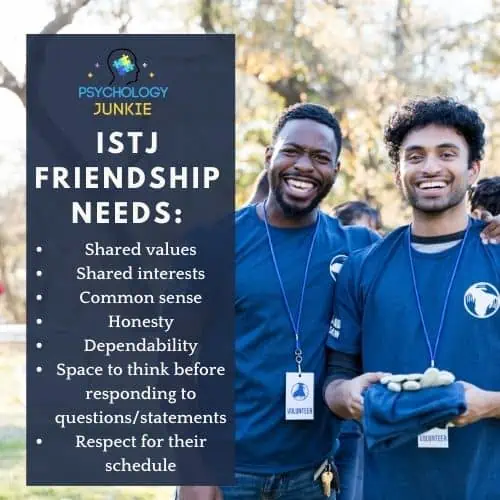




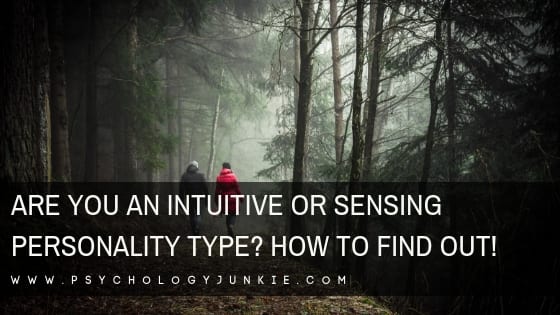


This is really helpful! It’s good to know what my husband may struggle with, in his friendships. Shockingly, I actually struggle more with finding true friends than my husband does! (Maybe that’s an INFj thing?) I hope you will also write one of these for women! 😌
Hi Louisa! I struggle more with friendships than my ESTP husband does as well! I do want to write an article about the female struggles as well and that’s what I have next on my list so stay tuned 🙂
Thanks for an excellent article, Susan! I look forward to your one on women and what each type struggles with! I’m an ENFP and love my enthusiasm and creativity the most! Have you written anything yet about where we can *find* people of various of the types to become friends with? I’d love to read THAT! Your descriptions of these men’s types makes me want to meet certain ones for friendships. Thanks for your deep understanding and interest in MBTI types!!! And the way you communicate!
INTPs dislike small talk just as much as INTJs. You allude to this in your INTP description, but you do not directly state it.
I am an intj, and i am honest to my friends and always willing to help them, if i can, whenever they are in need; but i first ensure my own safety. If there is my own loss in some serious way, then i will not likely to help them, but even then i will try to find out some other way to help them.
Is it morally wrong, i don’t know?
But i think it’s logically right.